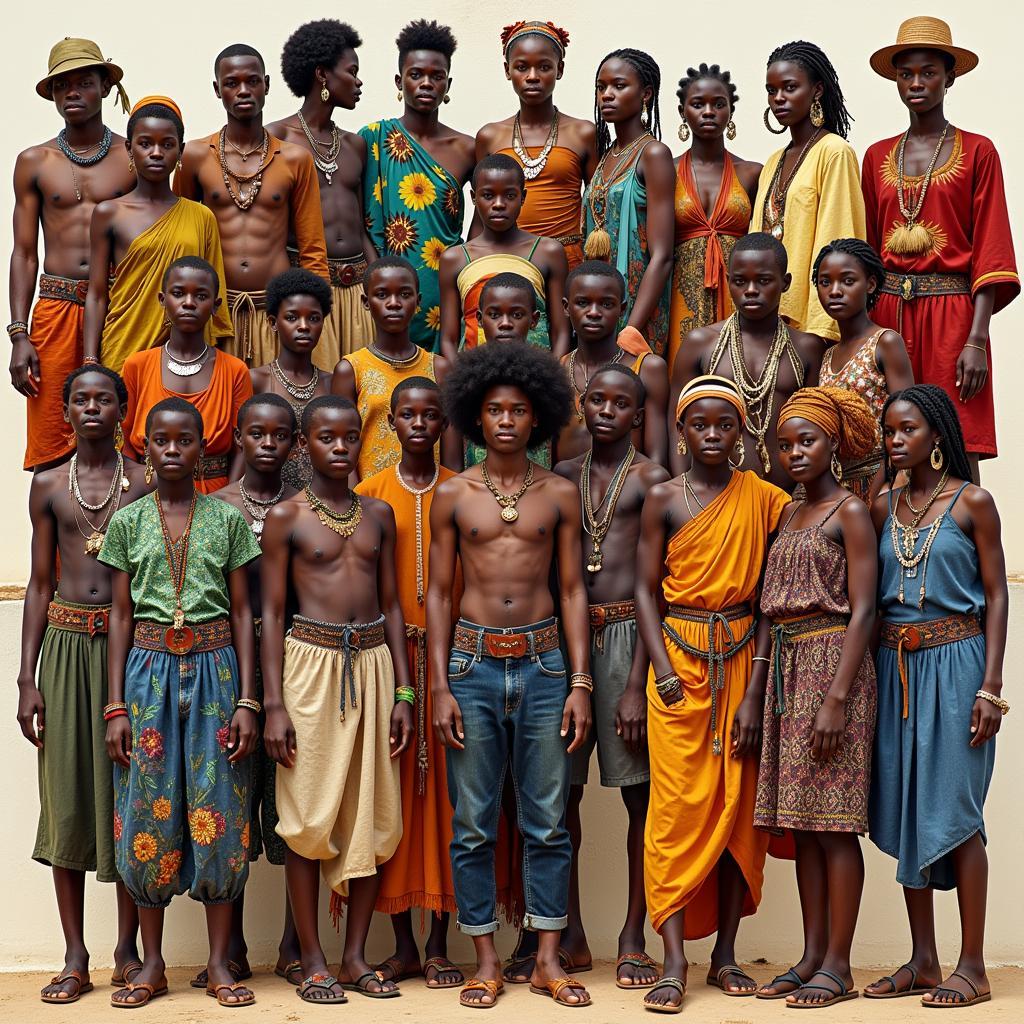Unveiling the African Pitbull: Myth vs. Reality
The term “African Pitbull” often sparks curiosity and conjures images of a fierce, exotic canine. This article delves into the reality behind this label, exploring its origins, characteristics, and the breeds often associated with it. We’ll separate fact from fiction, examining the controversies and ethical considerations surrounding these powerful dogs.
Decoding the “African Pitbull” Label
The term “African pitbull” isn’t a recognized breed designation. It’s a colloquialism, often used to describe various pitbull-type dogs found in Africa. This ambiguity can lead to misunderstandings and misrepresentations of these dogs. It’s crucial to understand that this term encompasses a diverse group of canines, each with its own unique traits. So, what are the breeds often referred to as “African pitbulls”?
Boerboel: A South African Guardian
The Boerboel, a large Molosser-type breed originating from South Africa, is often associated with the “African pitbull” label. Bred for guarding farms and livestock, Boerboels are known for their imposing size, strength, and protective instincts. They are intelligent and loyal, forming strong bonds with their families. However, their protective nature requires responsible ownership and early socialization.
The American Pitbull Terrier in Africa
American Pitbull Terriers are also found in Africa, sometimes contributing to the “African pitbull” label. Their presence in Africa is often linked to imports or breeding programs. These dogs, known for their muscular build and tenacity, require responsible ownership and training to ensure they become well-adjusted companions.
Responsible Ownership: A Crucial Factor
Regardless of the specific breed, responsible ownership is paramount for any dog, especially powerful breeds often labeled “African pitbulls.” Proper training, socialization, and a secure environment are essential for ensuring these dogs thrive and become well-integrated members of society.
Addressing Misconceptions and Promoting Responsible Pet Ownership
The term “African pitbull” often carries negative connotations due to sensationalized media portrayals and misunderstandings about pitbull-type breeds. Education and responsible breeding practices are vital to dispelling these myths and ensuring the well-being of these dogs.
Health and Care Considerations
“African pitbulls,” like any other dog, require proper care to ensure their health and well-being. Regular veterinary check-ups, a balanced diet, and adequate exercise are essential. Understanding the specific needs of the breed in question, whether it’s a Boerboel or an American Pitbull Terrier, is crucial for responsible ownership.
Conclusion: Beyond the Label
The term “African pitbull” serves more as a broad descriptor than a specific breed. Understanding the individual breeds associated with this label, their unique characteristics, and the importance of responsible ownership is essential for appreciating these powerful dogs. By moving beyond generalizations and focusing on responsible care, we can ensure the well-being of these canines and foster a positive relationship between humans and animals.
FAQ
- What is an “African pitbull”? It’s a colloquial term, not a breed, used to describe various pitbull-type dogs in Africa.
- Are “African pitbulls” dangerous? Any dog can be dangerous without proper training and socialization.
- What are the common breeds associated with this label? Boerboels and American Pitbull Terriers are often included.
- How can I find a reputable breeder? Research breeders thoroughly, focusing on health testing and ethical practices.
- What are the legal considerations for owning a pitbull-type dog in Africa? Regulations vary by country and region; research local laws.
- Are “African pitbulls” good family dogs? With proper training and socialization, they can be loving companions.
- Where can I learn more about responsible dog ownership? Consult with local trainers, veterinarians, and animal welfare organizations.
Common Scenarios and Questions
- Scenario: I’m considering adopting an “African pitbull.” What should I know? Research the specific breed, ensure you can provide proper care and training, and check local regulations.
- Question: How do I socialize my “African pitbull” puppy? Expose them to various people, places, and situations in a controlled and positive manner.
Further Reading and Resources
For more information on specific breeds and responsible dog ownership, explore other articles on our website related to dog training, breed information, and animal welfare.
When you need assistance, please contact us via Phone: +255768904061, Email: kaka.mag@gmail.com or visit our address: Mbarali DC Mawindi, Kangaga, Tanzania. We have a 24/7 customer service team.



